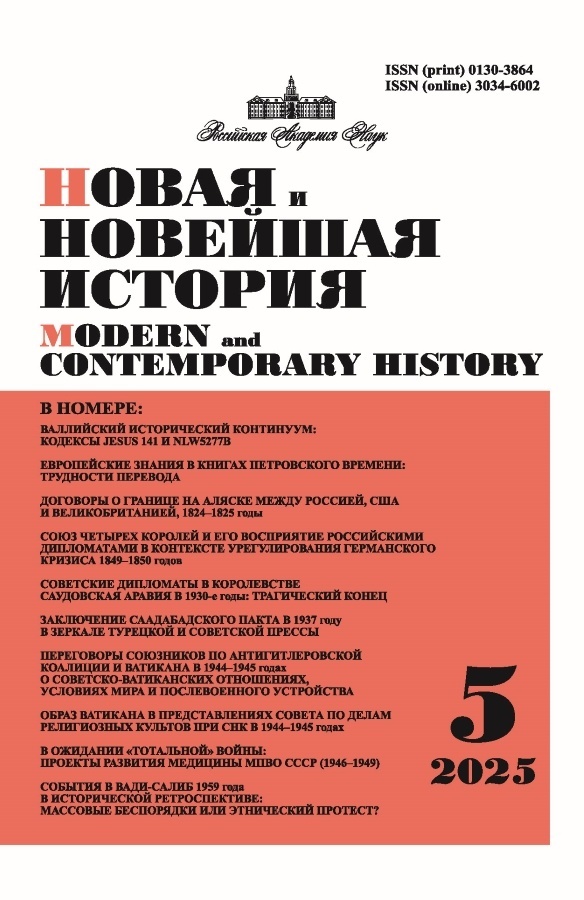The 1954 Geneva Conference: Who Won?
- Authors: Shubin A.V.1
-
Affiliations:
- Institute of World History, RAS
- Issue: No 6 (2023)
- Pages: 122-135
- Section: 20th century
- URL: https://rjsvd.com/0130-3864/article/view/670904
- DOI: https://doi.org/10.31857/S013038640026798-5
- ID: 670904
Cite item
Abstract
The article analyzes the 1954 Geneva Conference dedicated to the settlement of conflicts in Korea and Indochina. Despite the division of the conference participants into two camps, the motives of the delegations in each of them differed. Soviet diplomacy, led by Foreign Minister Vyacheslav Molotov, was concerned with obtaining a result that generally reinforced the peacekeeping policy of early détente. The Chinese diplomacy headed by Zhou Enlai sought to accomplish more specific tasks of creating buffers on the northern and southern flanks of the confrontation with the United States and its allies. As a result, Soviet diplomacy followed China's lead, and the option of partitioning Vietnam, first proposed by the PRC, was implemented, while the settlement of the Korean conflict was frozen. At the same time, the fate of Korea demonstrated to the participants that hopes for Vietnam's unification in the near future were illusory, yet the Vietnamese leadership nevertheless agreed to this option. Although, like their antagonists, the DRV and the DPRK played the role of junior partners, the representatives of the “great powers” took their position into account. Having weighed the disadvantages and advantages of partitioning Vietnam, the leadership of the DRV supported it. The PRC and the USSR also further improved relations with Britain and France, while the latter two went some way to isolating the more intransigent US diplomacy at the conference. As a result, the 1954 Geneva Conference was one of the major successes of the “early détente”, although it failed to create the conditions for long-term peace in Indochina.
About the authors
Aleksander Vladlenovich Shubin
Institute of World History, RASRussian Federation, Moscow
References
- Липкин М.А. Совет экономической взаимопомощи: альтернативный опыт альтернативного глобального мироустройства (1949–1979). М., 2019.
- Международные отношения и внешняя политика Советского Союза 1950–1959. I полутом. М., 1958.
- Советский Союз и Вьетнам в годы первой индокитайской войны. Женевская конференция. 1954 г. Сб. документов и материалов / сост. О.А. Шашкова, А.В. Борисова, Е.В. Кобелев, И.Н. Ларина. М., 2017.
- Хейстингс М. Вьетнам. История трагедии. 1945–1975. М., 2021.
- Gaiduk I.V. Confronting Vietnam: Soviet Policy toward the Indochina Conflict, 1954–1963. Washington, 2003.
- The Geneva Conference of 1954 – New Evidence from the Archives of the Ministry of Foreign Affairs of the People's Republic of Chinа // Cold War International History Project Bulletin: journal. 2008. № 16.
- Turner R.F. Vietnamese Communism: Its Origins and Development. Stanford, 1975.
- Waite J. The End of the First Indochina War: A Global History. Abingdon, 2012.
- Young K.T. The 1954 Geneva Conference: Indo-China and Korea. Westport, 1968.
Supplementary files











